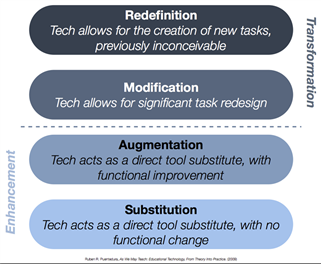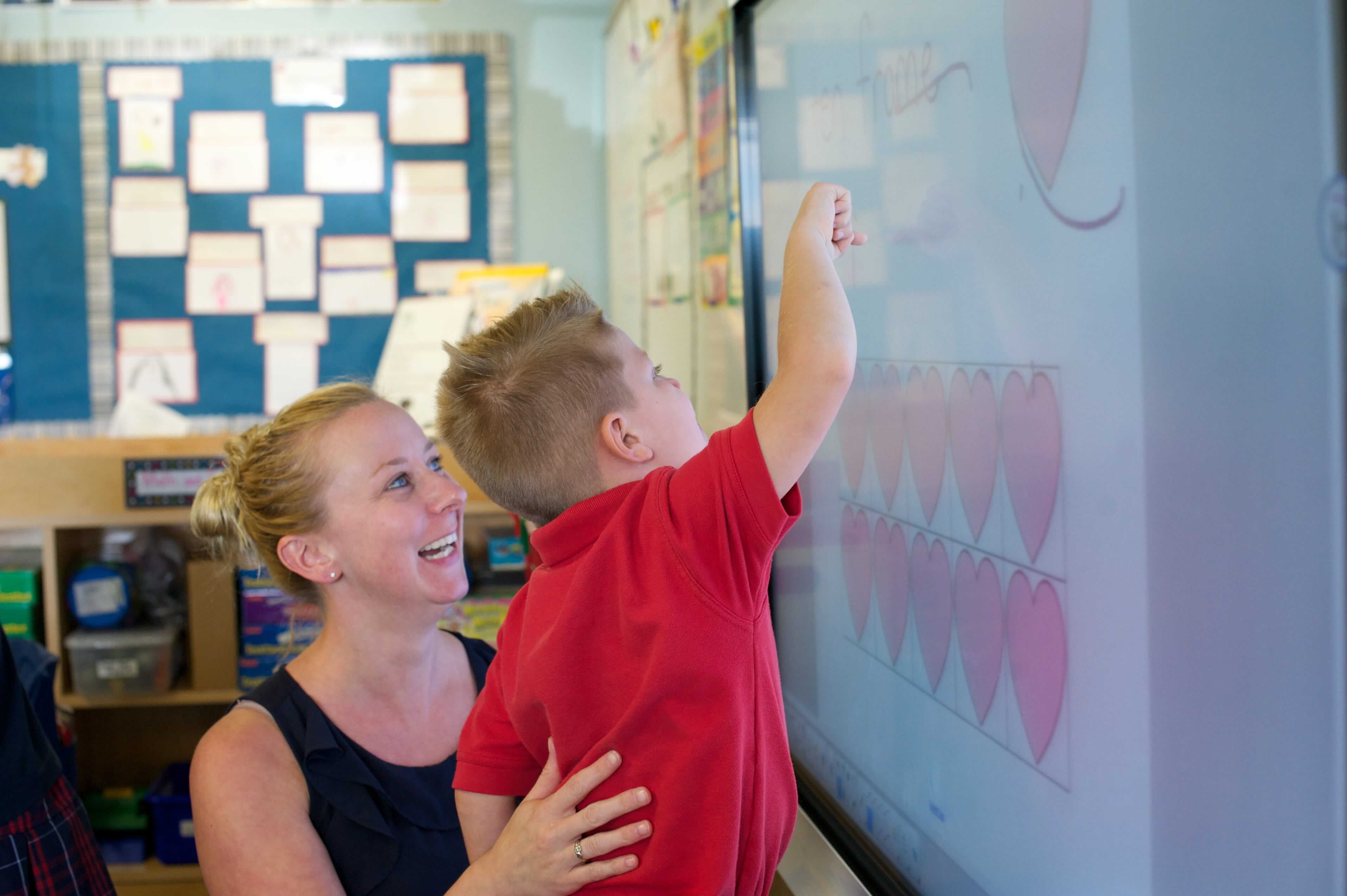Technology as a Tool for Teaching and Learning
Windermere Prep believes that the seamless integration of technology into our daily instructional practices is a way to actualize our instructional and curricular point of view. We embrace the integration of technology in our classrooms for the purpose promoting high levels of learning and in the process, transforming instructional tasks in ways that were never possible before. The fundamental purpose of this transformation is the activation of skills like critical thinking, discovery, innovation, problem solving, communication, and collaboration.

We utilize the SAMR model as a lens for identifying and discussing effective integration in this context. The "SAMR" acronym represents a four-level model of technology integration in our classrooms:
- Substitution: Technology acts as a direct tool substitute, with no functional change in instruction.
- Augmentation: Technology acts as a direct tool substitute, with functional improvement in instruction.
- Modification: Technology allows for significant task redesign.
- Redefinition: Technology allows for creation of new tasks that were previously inconceivable.
Laptop learning program
The Laptop Learning Program provides the opportunity for students to learn and to use technology tools within their classes. By incorporating the use of email, word processing, database, spreadsheets, presentation, and research tools into the curriculum, students have an opportunity to learn and use these skills well in advance of traditional programs. These technological skills are intended as tools to support the class curriculum and to assist students in completing assignments and projects. This model not only allows students the opportunity to gain computer skills, but also provides both teachers and students with tools for powerful teaching and learning. Laptops are simply another aspect of the excellent education provided at Windermere Preparatory School.
1:1 IPAD program
Starting in 2014, 3rd grade students at Windermere Preparatory School begin to use iPads to support their learning as a part of the iPad Pilot Project. Starting in the 2015 school year, parents of students in the 3rd grade will supply an iPad as standard school equipment through our "Bring Your Own Device" (BYOD) scheme.
The focus of the iPad program at Windermere Preparatory School is to provide tools and resources to the students. Increasing access to technology is essential for the future of education and learning, and one of the learning tools for students is the iPad. Technology can help to meet the needs of different intelligences, learning styles, and paces. The individual use of iPads empowers students to maximize their full potential and prepares them for transitioning to further study or the workforce.
Conclusions drawn from available research say that the 1:1 learning experience provides many positive outcomes for students, staff, and the community. The purpose of the iPad Initiative is to enhance the technology component of the curriculum so students can experience a true 21st century learning environment. This better prepares students for an increasingly complex, demanding, and competitive global society by providing them with the skills needed to succeed as learners, workers, and citizens.
Some of the research outcomes mentioned most are:
Improved writing skills and depth of students’ research
Increased student interest in learning and ownership of the learning process
Developed students who can think critically, create, collaborate, and communicate to be successful in school and beyond
Engaged students through project-based learning and on-demand access to information
The iPad supports learning in the ways students think. By putting a world of easily searchable information at their fingertips, inquiry-based learning becomes more possible. The integration of this technology into the classroom has the capacity to empower our students, so they will be able to direct their own learning with the teacher acting as facilitator and guide, rather than as a sage of knowledge.
Inquiry-based learning demands that students develop critical thinking skills to solve problems and find answers. Students also have more ownership of their learning, and their engagement in the learning process increases.
Google apps for education
Windermere Preparatory School has partnered with Google to access their Google Apps for Education suite of productivity tools for classroom collaboration. The addition of Google Apps for Education furthers the use of modern online collaboration tools to foster learning, teaching, and research on our campus. The use of Google Apps at WPS allows faculty, staff, and students to easily collaborate. The migration to Google Apps for Education provides UNLIMITED storage for all files and documents stored within Google Drive.
Google Apps for Education includes the following services:
Gmail: Google’s powerful e-mail program without the ads.
Google Docs: create and collaborate on documents, spreadsheets, presentations, forms, and drawings in real time.
Google Drive: upload, store, and share any file type.
Google Sites: develop and customize simple websites (no HTML required).
We're extremely happy to add these services to the growing suite of online tools that make it easy for students, teachers, and staff of Windermere Prep to work together. We believe that web-based software that enables real-time collaboration for students and faculty can truly enhance the unique education and research environment of WPS.
